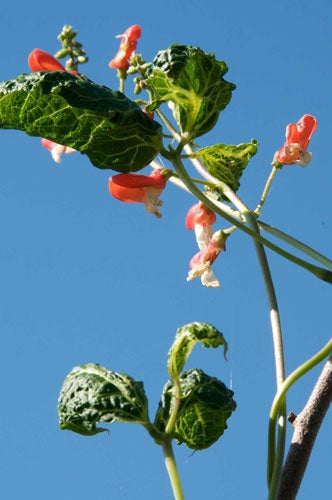Urban Gardener: Organics anonymous

Your support helps us to tell the story
From reproductive rights to climate change to Big Tech, The Independent is on the ground when the story is developing. Whether it's investigating the financials of Elon Musk's pro-Trump PAC or producing our latest documentary, 'The A Word', which shines a light on the American women fighting for reproductive rights, we know how important it is to parse out the facts from the messaging.
At such a critical moment in US history, we need reporters on the ground. Your donation allows us to keep sending journalists to speak to both sides of the story.
The Independent is trusted by Americans across the entire political spectrum. And unlike many other quality news outlets, we choose not to lock Americans out of our reporting and analysis with paywalls. We believe quality journalism should be available to everyone, paid for by those who can afford it.
Your support makes all the difference.An allotment committee member made the politest suggestion recently that my plot was getting out of hand. "You can't expect those with full-time employment to keep on top of their allotment," he said. "Well, can you?" It was in between the words "allotment" and "Well, can you?" that the faintest of hand gestures (involuntary I think) was aimed towards my couch- and bindweed-infested herb border. I'd been meaning to tackle it for the past three years but somehow there's never been the time and it shows. I did think of saying that I was doing a study for the Royal Horticultural Society on the shade tolerance of rosemary, lavender and other herbs, and that if I cleaned up the bed now it would spoil three years' work, but decided it would be best to nod and throw in the old "doing Chelsea messed us up" excuse. His knowing smile suggested that such get-outs are wearing a bit thin. I used the same excuse two years ago and last year, four weeks touring India and Nepal in June (and another four trying to evict a squatter in my liver) put the kibosh on everything but the spuds.
I'm not alone in having to make excuses to ward off the inevitable letter from the council if the plot gets too untidy. Tyrone, a tree surgeon, has probably had the best excuse of all after falling some 50 feet from a tree and breaking just about every bone in his body. His return to the plot after more than a year in plaster is thanks to Henry, our resident Green Man, who kept Tyrone's plot tidy enough to ward off the marching-order correspondence referred to as "A Letter". Henry has helped out many people when things get too much for them or when unforeseen emergencies mean that keeping your allotment weed-free is the last thing on your mind. The upshot of this, of course, is that Henry himself will one day probably get A Letter for spending too much time helping others and not keeping his own patch in order. To be fair, our council is quite reasonable. There has been the occasional breakdown in communication, when someone has been gravely ill and threatened with allotment eviction; but on the other hand, the council is under increasing pressure to make plots available to those on waiting lists.
Anyone looking for an excuse for neglecting their plot this year might want to take advantage of the recent compost contamination scandal. It turns out that grass treated a year ago with the herbicide Aminopyralid, and then fed to cattle as silage, still has traces of the chemical by the time manure has been sold to amateur gardeners and allotment holders – and it can have an adverse effect on crops. Typical symptoms include blistering leaves, fern-like foliage and deformed fruit in legumes, tomatoes and some root crops. There is evidence of it on our plot where our immediate neighbour's runner beans and peas have been badly affected. She is particularly upset because the bag of compost she thinks is responsible for her mutant crops is clearly labelled "organic".
Initial advice from the Royal Horticultural Society was to avoid eating food showing signs of contamination, but the PSD (Pesticide Safety Directorate), after consultation with the Food Standards Agency, now say that affected produce is safe to eat and that land contaminated by Aminopyralid will be OK to plant next spring. Vegetable growers are being encouraged to dig or rotavate affected land to speed up the decomposition of the herbicide, and to contact the PSD (information@psd.hse.gsi.gov.uk) and the manufacturers Dow Agro Sciences (ukhotline@dow.com) to help them trace any contamination back to its source. So the situation isn't as bad as we feared, but many of us are wondering who to trust when it comes to using organic growing methods. We might joke about using Aminopyralid poisoning as an excuse for our lacklustre plot this year, but really there's no excuse for labelling a product "organic" when it's anything but.
Join our commenting forum
Join thought-provoking conversations, follow other Independent readers and see their replies
Comments